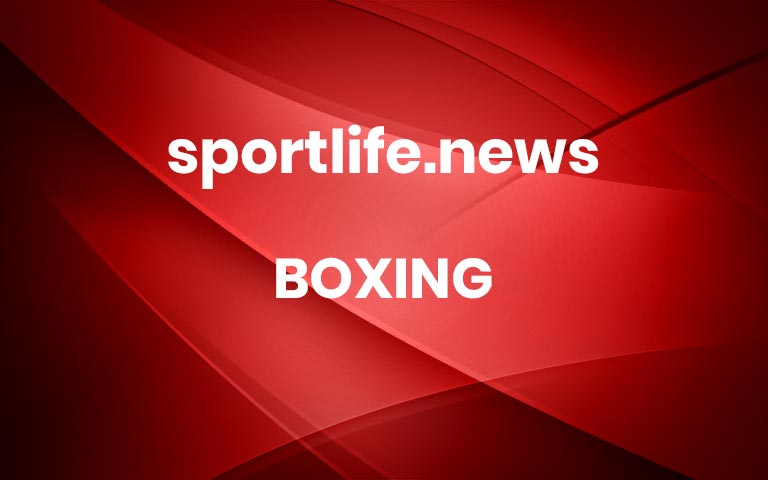Joe Joyce could have 2016 Rio Olympic silver upgraded to gold as IOC continue investigation into suspicious fights
JOE JOYCE could still have his controversial silver medal upgraded to gold amid an investigation by the International Olympic Committee. Joyce was left to stand on the second-placed podium in Rio following defeat to France’s Tony Yoka in the super-heavyweight division.
Joe Joyce was controversially beaten by Tony YokaCredit: News Group Newspapers Ltd
Joe Joyce poses with his 2016 Olympic silver medalCredit: News Group Newspapers Ltd
But that was the last year the International Boxing Association had control over the Olympic sport, amid allegations of corruption.
The IOC stripped AIBA and launched an investigation in the wake of the refereeing and judging scandals in Brazil.
Among the controversies was Joyce’s loss to Yoka, meaning the Brit is still hopeful of receiving a delayed gold as the probing continues.
He said: I’ve seen the report that I could be promoted to gold, although I’m still waiting for the medal to come in the post.
.css-16e4f55{margin:16px 0;}.css-1h37p88{background-color:rgba(236,245,247,1);margin:16px 0;}.css-1tapza8{padding:20px 15px;}.css-1bk4jdt{padding:20px 15px;}.css-1qsre5o{display:-webkit-box;display:-webkit-flex;display:-ms-flexbox;display:flex;height:100%;-webkit-align-items:flex-start;-webkit-box-align:flex-start;-ms-flex-align:flex-start;align-items:flex-start;-webkit-align-content:flex-start;-ms-flex-line-pack:flex-start;align-content:flex-start;-webkit-box-flex-wrap:nowrap;-webkit-flex-wrap:nowrap;-ms-flex-wrap:nowrap;flex-wrap:nowrap;-webkit-flex-direction:column;-ms-flex-direction:column;flex-direction:column;-webkit-box-pack:justify;-webkit-justify-content:space-between;justify-content:space-between;}.css-16djrfc{overflow:hidden;-webkit-line-clamp:1;-webkit-box-orient:vertical;display:-webkit-box;word-wrap:break-word;padding-top:2px;}.css-1skzs3j{overflow:hidden;-webkit-line-clamp:1;-webkit-box-orient:vertical;display:-webkit-box;word-wrap:break-word;padding-top:2px;}.css-7ysxcx{padding:0;text-transform:uppercase;-webkit-text-decoration:none;text-decoration:none;}.css-7ysxcx:hover:not(:disabled){-webkit-text-decoration:none;text-decoration:none;}.css-jkwlot{display:-webkit-box;display:-webkit-flex;display:-ms-flexbox;display:flex;height:100%;-webkit-align-items:center;-webkit-box-align:center;-ms-flex-align:center;align-items:center;-webkit-flex-direction:row;-ms-flex-direction:row;flex-direction:row;-webkit-box-pack:justify;-webkit-justify-content:space-between;justify-content:space-between;padding:0;text-transform:uppercase;-webkit-text-decoration:none;text-decoration:none;}.css-jkwlot:hover:not(:disabled){-webkit-text-decoration:none;text-decoration:none;}.css-1x7hydu{font-family:The Sun;font-size:24px;line-height:1.1666666666666667;font-weight:400;letter-spacing:0%;font-stretch:semi-condensed;padding:1px 0px;}.css-1x7hydu::before{content:”;display:block;height:0;width:0;margin-bottom:calc(-0.24520833333333342em + -0.5px);}.css-1x7hydu::after{content:”;display:block;height:0;width:0;margin-top:-0.2333333333333334em;}.css-1lobn43{display:inline;font:inherit;margin:0;color:rgba(0,0,0,1);}.css-1lobn43 svg{fill:rgba(0,0,0,1);}READ MORE IN BOXING.css-1gojmfd{margin-bottom:16px;}.css-gmec1d{display:-webkit-inline-box;display:-webkit-inline-flex;display:-ms-inline-flexbox;display:inline-flex;height:auto;-webkit-align-items:center;-webkit-box-align:center;-ms-flex-align:center;align-items:center;-webkit-align-content:center;-ms-flex-line-pack:center;align-content:center;-webkit-box-flex-wrap:nowrap;-webkit-flex-wrap:nowrap;-ms-flex-wrap:nowrap;flex-wrap:nowrap;-webkit-flex-direction:row;-ms-flex-direction:row;flex-direction:row;-webkit-box-pack:start;-ms-flex-pack:start;-webkit-justify-content:flex-start;justify-content:flex-start;margin-left:calc(-20px/2);margin-right:calc(-20px/2);}.css-fh9577{display:-webkit-inline-box;display:-webkit-inline-flex;display:-ms-inline-flexbox;display:inline-flex;margin-left:calc(20px/2);margin-right:calc(20px/2);}.css-65fvqt{max-width:302px;max-height:294px;}.css-h98a3b{box-sizing:border-box;overflow:hidden;background-color:rgba(236,245,247,1);-webkit-text-decoration:none;text-decoration:none;position:relative;display:-webkit-box;display:-webkit-flex;display:-ms-flexbox;display:flex;-webkit-flex-direction:column;-ms-flex-direction:column;flex-direction:column;max-width:302px;max-height:294px;}.css-bk55po{box-sizing:border-box;display:block;position:relative;margin-bottom:0;}.css-1shocxe{box-sizing:border-box;}.css-1a2irou{box-sizing:border-box;padding:0;}.css-1a2irou a:not(.nk-card-link){z-index:2;position:relative;}.css-1uyse24{-webkit-text-decoration:none;text-decoration:none;border:none;}.css-1uyse24 .nk-headline-kicker{color:rgba(0,114,238,1);}.css-1uyse24:hover:not(:disabled) .nk-headline-kicker{color:rgba(0,86,180,1);-webkit-text-decoration:underline;text-decoration:underline;}.css-1uyse24:active:not(:disabled) .nk-headline-kicker{color:rgba(0,62,129,1);-webkit-text-decoration:underline;text-decoration:underline;}.css-1uyse24:visited:not(:disabled) .nk-headline-kicker{color:rgba(71,30,121,1);}.css-1uyse24 .nk-headline-heading{color:rgba(34,37,38,1);}.css-1uyse24:hover:not(:disabled) .nk-headline-heading{color:rgba(0,86,180,1);-webkit-text-decoration:underline;text-decoration:underline;}.css-1uyse24:active:not(:disabled) .nk-headline-heading{color:rgba(0,62,129,1);-webkit-text-decoration:underline;text-decoration:underline;}.css-1uyse24:visited:not(:disabled) .nk-headline-heading{color:rgba(71,30,121,1);}.css-1uyse24:before{content:”;top:0;right:0;bottom:0;left:0;overflow:hidden;position:absolute;z-index:1;}.css-xpuujo{border-width:0 1px 1px 1px;border-style:solid;border-color:rgba(149,199,208,1);padding:12px;max-height:104px;min-height:98px;}.css-tqcu81{padding:0;border-width:0 1px 1px 1px;border-style:solid;border-color:rgba(149,199,208,1);padding:12px;max-height:104px;min-height:98px;}.css-124tga5{overflow:hidden;-webkit-line-clamp:3;-webkit-box-orient:vertical;display:-webkit-box;word-wrap:break-word;line-height:1;}.css-5jzxpx{overflow:hidden;-webkit-line-clamp:3;-webkit-box-orient:vertical;display:-webkit-box;word-wrap:break-word;line-height:1;}.css-bq4915{margin:0;padding:0;color:rgba(34,97,108,1);text-transform:uppercase;-webkit-text-decoration:none;text-decoration:none;font-family:The Sun;font-size:18px;line-height:1.333;font-weight:700;letter-spacing:0%;font-stretch:normal;display:inline;}.css-bq4915:hover:not(:disabled){-webkit-text-decoration:none;text-decoration:none;}PULLING NO PUNCHES .css-8h3gc3{margin:0;padding:0;color:rgba(34,37,38,1);-webkit-text-decoration:none;text-decoration:none;font-family:The Sun;font-size:18px;line-height:1.333;font-weight:700;letter-spacing:0%;font-stretch:normal;display:inline;}.css-8h3gc3:hover:not(:disabled){-webkit-text-decoration:none;text-decoration:none;}Joe Joyce gives verdict on heavyweight rivals as he chases mega-fight
“Hopefully it will happen soon but now I need to keep fighting.”
Joyce, now 36, turned professional in 2017 and has since raced towards a first world title shot.
He is currently mandatory challenger for the WBO belt held by Oleksandr Usyk, 35.
But the Ukrainian defends that and the other two belts he won against Anthony Joshua, 32, in an August 20 rematch in Saudi.
.css-qu9fel{border-top:1px solid #dcdddd;}.css-b9nmbi{margin-bottom:16px;border-top:1px solid #dcdddd;}.css-1qsre5o{display:-webkit-box;display:-webkit-flex;display:-ms-flexbox;display:flex;height:100%;-webkit-align-items:flex-start;-webkit-box-align:flex-start;-ms-flex-align:flex-start;align-items:flex-start;-webkit-align-content:flex-start;-ms-flex-line-pack:flex-start;align-content:flex-start;-webkit-box-flex-wrap:nowrap;-webkit-flex-wrap:nowrap;-ms-flex-wrap:nowrap;flex-wrap:nowrap;-webkit-flex-direction:column;-ms-flex-direction:column;flex-direction:column;-webkit-box-pack:justify;-webkit-justify-content:space-between;justify-content:space-between;}.css-q8gelu{margin-bottom:24px;}.css-7ysxcx{padding:0;text-transform:uppercase;-webkit-text-decoration:none;text-decoration:none;}.css-7ysxcx:hover:not(:disabled){-webkit-text-decoration:none;text-decoration:none;}.css-jkwlot{display:-webkit-box;display:-webkit-flex;display:-ms-flexbox;display:flex;height:100%;-webkit-align-items:center;-webkit-box-align:center;-ms-flex-align:center;align-items:center;-webkit-flex-direction:row;-ms-flex-direction:row;flex-direction:row;-webkit-box-pack:justify;-webkit-justify-content:space-between;justify-content:space-between;padding:0;text-transform:uppercase;-webkit-text-decoration:none;text-decoration:none;}.css-jkwlot:hover:not(:disabled){-webkit-text-decoration:none;text-decoration:none;}.css-1x7hydu{font-family:The Sun;font-size:24px;line-height:1.1666666666666667;font-weight:400;letter-spacing:0%;font-stretch:semi-condensed;padding:1px 0px;}.css-1x7hydu::before{content:”;display:block;height:0;width:0;margin-bottom:calc(-0.24520833333333342em + -0.5px);}.css-1x7hydu::after{content:”;display:block;height:0;width:0;margin-top:-0.2333333333333334em;}.css-1lobn43{display:inline;font:inherit;margin:0;color:rgba(0,0,0,1);}.css-1lobn43 svg{fill:rgba(0,0,0,1);}Most read in Boxing.css-1gojmfd{margin-bottom:16px;}.css-zdjvqv{display:-webkit-box;display:-webkit-flex;display:-ms-flexbox;display:flex;height:100%;-webkit-align-items:flex-start;-webkit-box-align:flex-start;-ms-flex-align:flex-start;align-items:flex-start;-webkit-align-content:flex-start;-ms-flex-line-pack:flex-start;align-content:flex-start;-webkit-box-flex-wrap:nowrap;-webkit-flex-wrap:nowrap;-ms-flex-wrap:nowrap;flex-wrap:nowrap;-webkit-flex-direction:column;-ms-flex-direction:column;flex-direction:column;-webkit-box-pack:space-around;-ms-flex-pack:space-around;-webkit-justify-content:space-around;justify-content:space-around;margin-top:calc(-12px/2);margin-bottom:calc(-12px/2);}.css-zdjvqv:before,.css-zdjvqv:after{content:”;display:block;}.css-1meuhfk{display:-webkit-inline-box;display:-webkit-inline-flex;display:-ms-inline-flexbox;display:inline-flex;margin-top:calc(12px/2);margin-bottom:calc(12px/2);}
JOIN SUN VEGAS: GET A FREE £10 BONUS WITH 100s OF GAMES TO PLAY AND NO DEPOSIT REQUIRED (Ts&Cs apply)
It leaves Joyce at the front of the queue but still waiting for his opportunity.
To pass the time, he stopped Christian Hammer, 34, at the weekend in a bout where he took more damage than needed.
Joyce admitted: “I don’t want to keep taking big shots like this, even though the crowds find it exciting.
“The ring rust affected my boxing skills but not the timing of my own punches.
“I feel I’m ready for Fury and Joshua but I will use the wait to make improvements to my defence.”
Joe Joyce beat Christian Hammer in four roundsCredit: Reuters More




